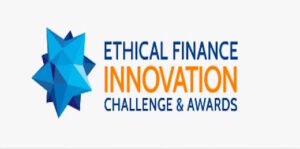The National Investor (TNI), one of the oldest merchant banks in the UAE, and Hawkamah, The Institute for Corporate Governance have today published their joint research Power Matters: A Survey of GCC boards. The report is the first empirical research of its kind in the region and it analyses boards of some 582 companies in the GCC, covering 4,254 seats.
Power Matters highlights five main conclusions from their investigation: Board size is a function of multiple parameters, only one of which is company size; Female board presence is low, but not as low as expected; Female board presence depends on a mix of influences, of which social and religious are most important; Individual power seems fairly diluted in the region but family power is very high and finally; There are significant discrepancies across the GCC.
Key findings are listed below:
Size Matters
- There are significant variations in board sizes across the region. Saudi companies have the biggest boards with a median of 9 members, Kuwait companies have the smallest boards with a median of 6 members
- The legal framework provides one explanation for the differences in size
- Year on year average board sizes in the UAE have decreased
- The five largest companies in each market have board sizes significantly above their market average, but correlation between company size and board size is not linear
Gender Matters
- Female representation is generally low in the GCC, as expected
- Representation of women on boards and in government varies strikingly. The percentage of women on boards in Kuwait is 2.7 and 2.3 in Oman, compared to 0.4, 2.0 in Italy and 3 in Spain. The lowest female representation was in Saudi.
Multi Board Directors
- There is pleasingly little cross-representation, 80-90% of Directors in the GCC sit on one board only
- Bahrain has the best board single board Director statistics, Oman and Qatar have most multi-board Directors
- Population composition and education levels in each market are the biggest influences
Family Power
- Families with the most Directors on company boards are the most economically influent
- Individual power in the region is diluted, with power held amongst a small pool of royal and business families
- On average 25-75% of companies researched have at least two board members from the same family, including 76% of Qatari companies and only 39% of Dubai listed companies
- The top 15 families in Qatar control more than 50% of public company boards
- Some families own up to 100% of a board, this is particularly prevalent in Kuwait
- Unexpectedly prominent, ruling families are largely absent from listed companies, except in Qatar where the ruling family presides over 76% of all public company boards
- The report ranks the Top Ten Most Powerful companies in each GCC market
Author, Amer Halawi, Head of Research at TNI explained: “We assume that company directors are economically powerful, particularly in this region. Furthermore, we believe that families in the Gulf have been at the core of political and economic influence. The purpose of the research was to understand the mechanics of such power and of family and possibly female influence.”
Dr Nasser Saidi, Executive Director for Hawkamah said: “Good board practice calls for a manageable board and a board with some independence. Whilst GCC boards are generally manageable, we still have a long way to go in building independence in the regions board rooms.
“The aim of this publication is to highlight the corporate governance gap in the region and to encourage more diversification in our board rooms, to globalize the outlook of our boards and to support the important wealth creation role that they play for our economies.”
Power Matters is a sequel to TNI’s “It’s a Family Affair” research published in 2007. TNI’s research division investigates a wide and varied range of subjects and over the past year the teams reports have identified and lead debate on some new regional business trends.



